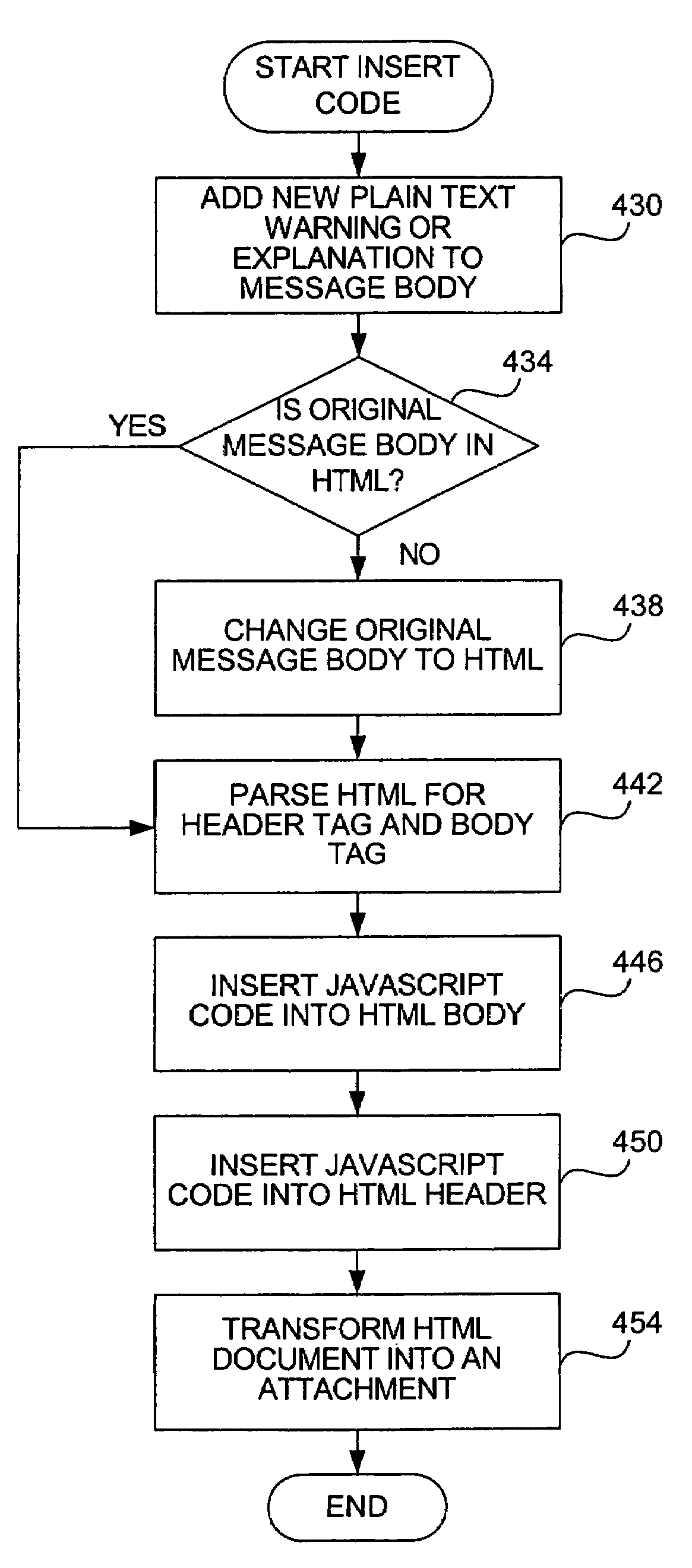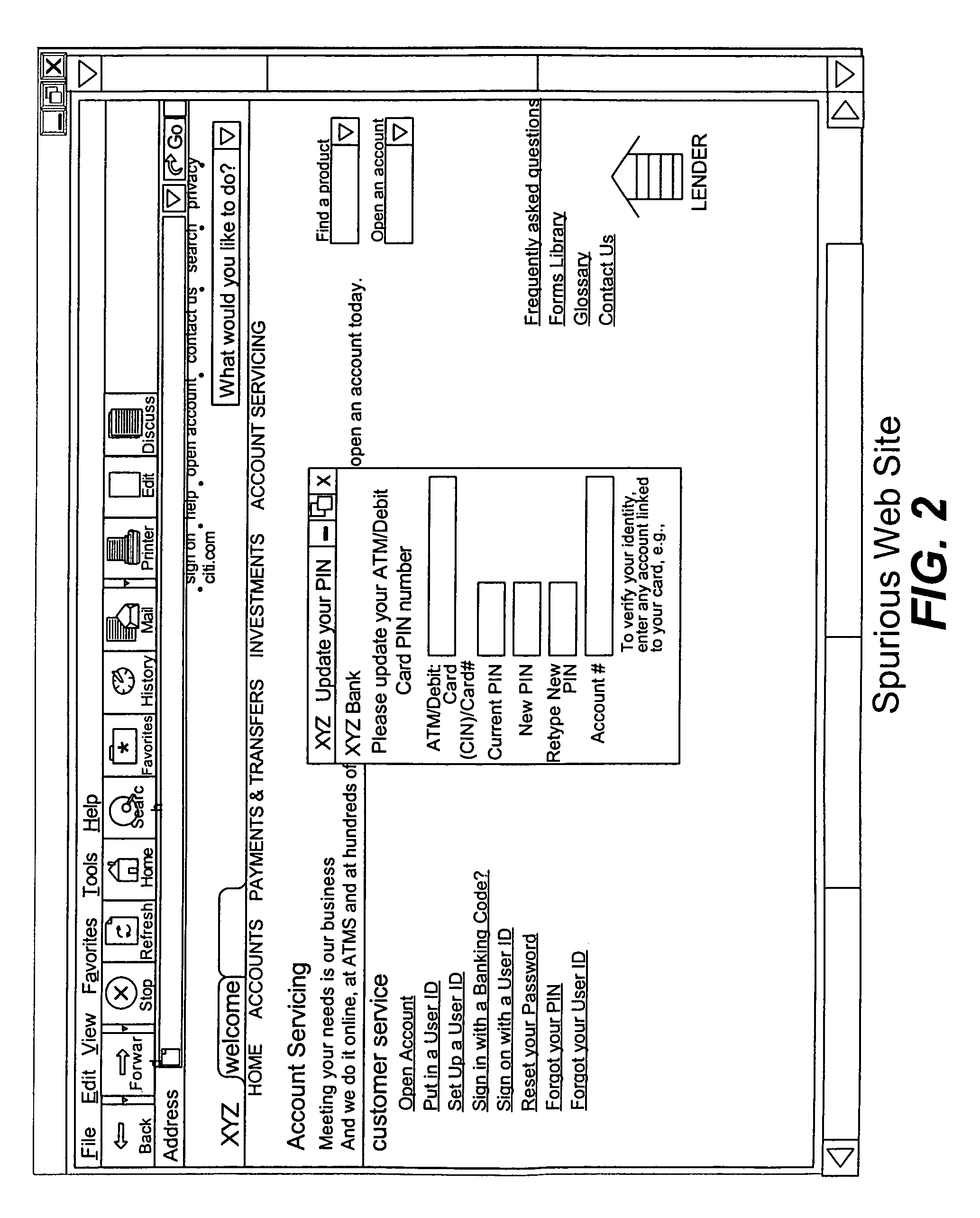Controlling hostile electronic mail content
a hostile electronic mail and content technology, applied in the field of electronic information screening, can solve the problems of increasing damage, loss of money or customer privacy information, and the lack of useful and timely zero-day protection of existing signature- or pattern-based interception art, etc., to achieve the effect of reducing damage, simple implementation of the technique, and less cos
- Summary
- Abstract
- Description
- Claims
- Application Information
AI Technical Summary
Benefits of technology
Problems solved by technology
Method used
Image
Examples
Embodiment Construction
[0038]In order to overcome the problems mentioned above with the phishing attack and currently available techniques, it is realized that software can be inserted into an e-mail message and then run on the client side. No extra client-side agent software would be needed as the inserted software is present within (or attached to) the e-mail message itself.
[0039]The present invention is applicable to any electronic messaging system in general, and can be used with electronic messages such as the commonly referred to “e-mail” and instant messages. Electronic messages known as e-mail include those messages implemented using SMTP and other similar protocols; instant messages include those instant messaging systems using protocols provided by Microsoft, Yahoo, AOL, ICQ, etc. Other similar types of electronic messages are also within the scope of this invention. For ease of understanding of the examples provided herein, the following text refers to e-mail messages in the examples, but the i...
PUM
 Login to View More
Login to View More Abstract
Description
Claims
Application Information
 Login to View More
Login to View More - Generate Ideas
- Intellectual Property
- Life Sciences
- Materials
- Tech Scout
- Unparalleled Data Quality
- Higher Quality Content
- 60% Fewer Hallucinations
Browse by: Latest US Patents, China's latest patents, Technical Efficacy Thesaurus, Application Domain, Technology Topic, Popular Technical Reports.
© 2025 PatSnap. All rights reserved.Legal|Privacy policy|Modern Slavery Act Transparency Statement|Sitemap|About US| Contact US: help@patsnap.com



